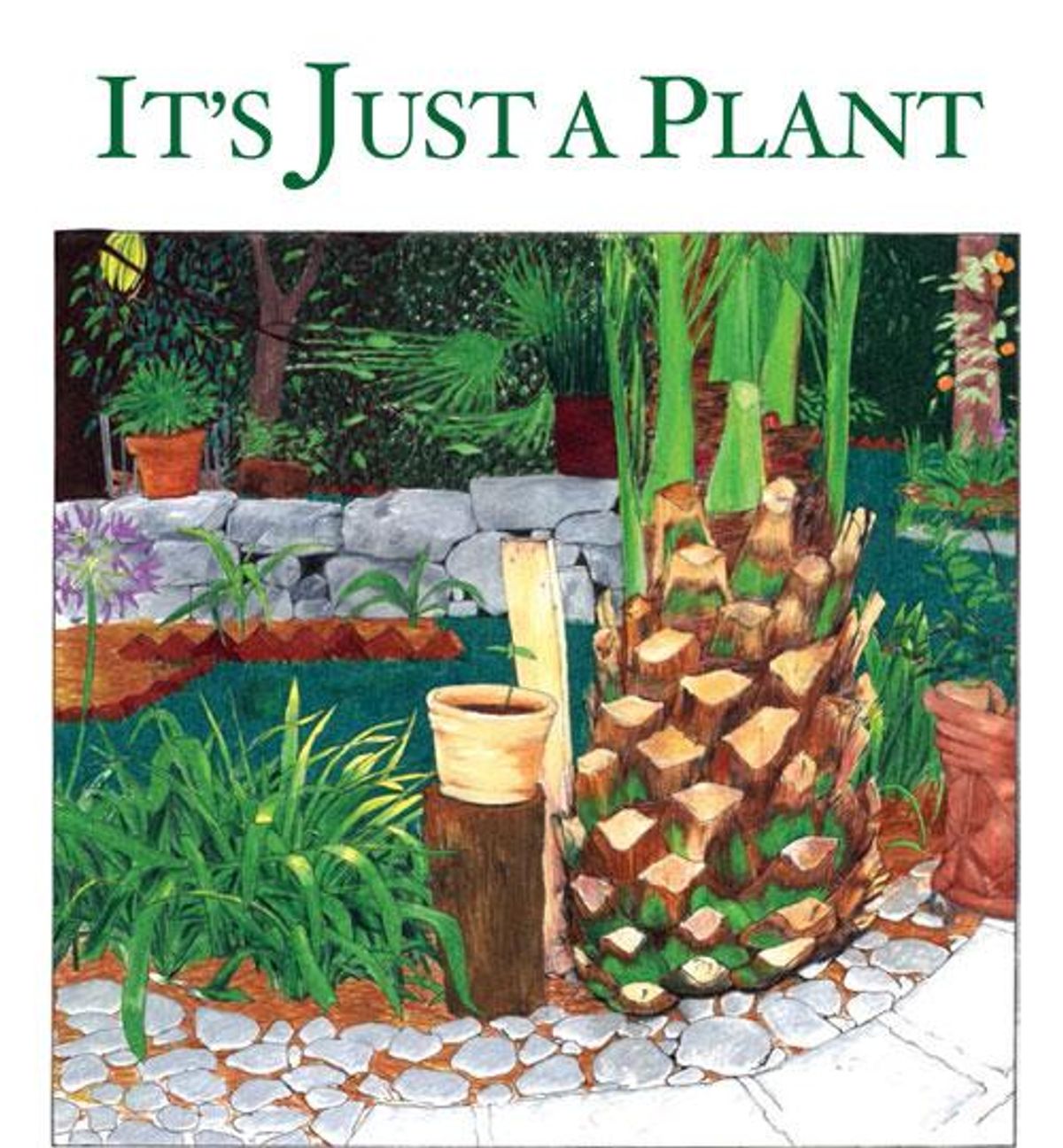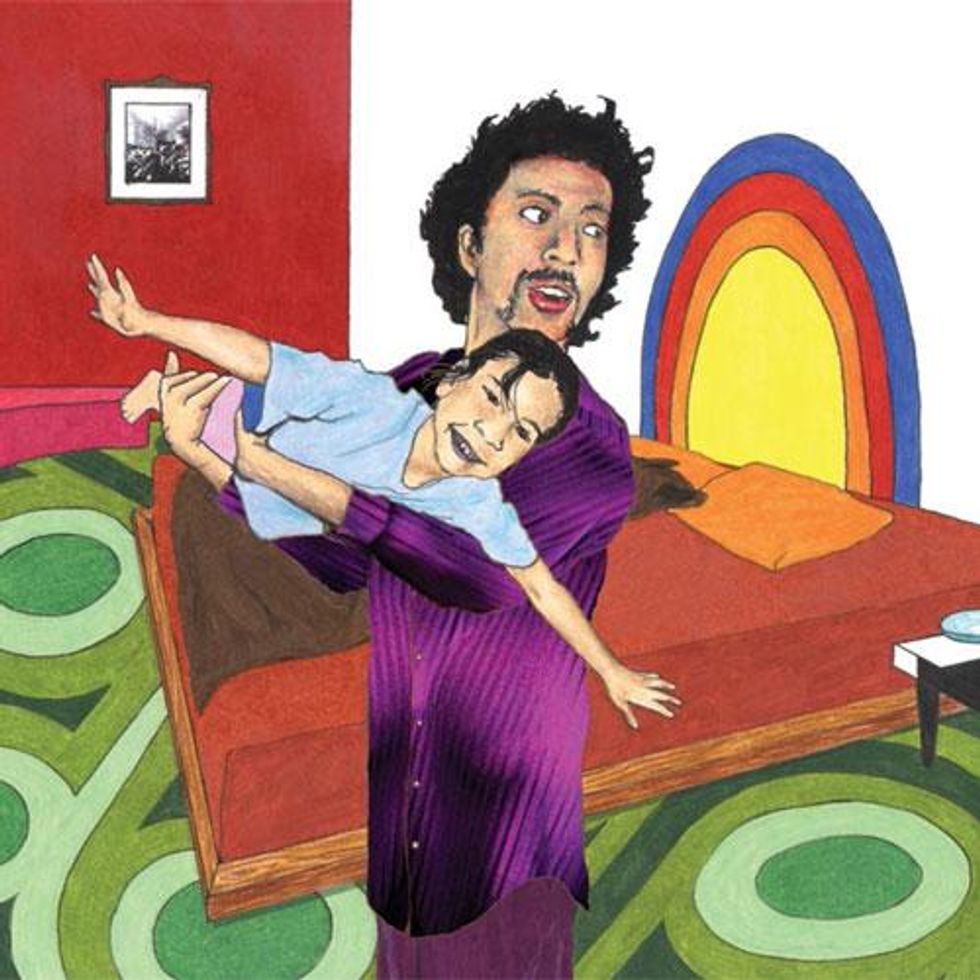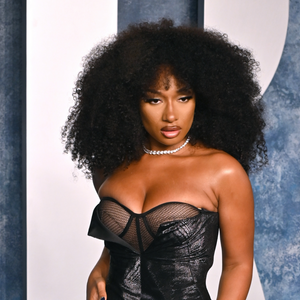It doesn't often happen that you come across a children's book that can be described as revolutionary or profound. My last children's book review was for The Princes and the Treasure, which was a fairy tale involving, well, two fairies (read here). My latest favorite is It's Just a Plant, which teaches children all of the fine qualities of America's number 1 plant, marijuana. This book was written and illustrated by Ricardo Cortes, who also illustrated the famous Amazon best seller Go the Fuck to Sleep. It follows a little girl named Jackie as she stumbles upon the magical green world of ganja.
The story opens with Jackie waking up in the middle of the night and smelling something funny coming from her parents' bedroom. She then busts her parents smoking weed, and they casually explain to her what it is. The rest of the book chronicles her adventures in discovering everything there is to know about cannabis (except, of course, what it's like to smoke it). It's enlightening and educational, and is a great way to introduce the dreaded "drug talk" with your kids. No, it is not an instruction guide to show your kids how to smoke weed. I had a chance to sit down with the author and ask him some burning questions (pun intended):
Frank:It's Just a Plant is unique and educational while having an underlying sense of humor. Is that what you were trying to achieve?
Ricardo: Absolutely not! I was hoping to strip the discussion of any humor whatsoever. There should be no fun or pleasure in talking to kids about difficult subjects such as drugs or sex, hence the effective fear-based models of education such as the "Just Say No" campaigns. Just kidding.
How has it been received? What do the naysayers say?
I've received many messages from parents who appreciated a tool to guide a different type of conversation than the usual, aforementioned "Just Say No" approach. As much as we want to deter underage experimentation, we know there are millions of adults, parents, even grandparents who have reasonably and responsibly integrated some marijuana use into their lives, whether for recreational or medicinal purposes. So I've gotten the thumbs-up from many readers who require a curriculum beyond "pot is a highway to destruction." On the other hand, there is certainly a large group of people who are offended or afraid of this robust style of discussion. Most famously, Bill O'Reilly took me to task for talking to kids about pot, at the same time acknowledging that his own book about sex education for kids probably didn't encourage children to start fucking at an earlier age.
You illustrated Go the Fuck to Sleep, which was clearly satire but with a heavy dose of realism in regards to the sentiment that parents just want their kids to go to sleep. Is It's Just a Plant the same thing?
Not really. GTFTS is aimed at parents, who likely laughed at the book but more often than not found the language inappropriate for their kids. IJAP is actually written for children. My hope is that it's not something a child will read on their own but it is designed for parents to be able to read it with their kid and open up a dialogue. I expect the knowledge and experience of a parent can help fill in some of the gaps that my short primer inevitably has in dealing with the vast terrain of the topic.
Personally, I am against marijuana prohibition, but I'm not sure about how I feel about exposing my son to the concept yet. In your opinion, what age should you read this to your child?
I don't really know a magic age. Again, it's a similar dilemma in deciding at what age should a child learn about sex, another potentially pleasurable adult activity that could lead to serious problems if experimented with irresponsibly. I'd imagine that the conversation about marijuana happens way before a child considers trying it. A parent who smokes marijuana might want to explain to their child what it is, rather than hiding their stash in a drawer and hoping the kid is none the wiser. Parents who don't smoke should also be warned that their children might be exposed to marijuana a lot sooner than they imagine ... so a sit-down and read-aloud might not be a bad preemptive lesson for everyone.
The interesting part of your book is that you cover pot culture very quickly and effortlessly -- the casual smokers at home, the farmer growing weed who doesn't smoke it, the doctor prescribing cannabis, the police officer "just doing his job," and finally the street smokers just hanging out.
I've always been extremely frustrated with the lazy image of the "pot smoker": slacker, deadhead, du-u-ude. Of course, there are those smokers, and there are also CEOs, mayors, district attorneys, and physicians who use the plant. Without hammering away at the idea, I did want to breezily introduce a sense of diversity -- and as importantly, I wanted to include nonusers in this pantheon of supporters to marijuana policy reform.
Do you feel that this book could possibly encourage kids to try marijuana at a younger age?
I think there's already a lot of influences out there that already encourage kids to try the drug: pop culture, cursory pot-legalization news clips, and the breakdown of credibility with regard to traditional antipot education. I think the absence of a more directed discussion coming from parents is clearly the biggest risk factor, and I'm hoping the book is a step in that process.
I believe we can diminish early use and abuse of drugs by opening channels of communication between children and their parents, even if marijuana use must be discussed in terms other than outright denouncement. I understand that parents are scared, because an honest education might involve confessing to their kids that adults can enjoy a glass of wine, maybe smoke a joint before bed. But just because you explain to a child about the birds and the bees, it doesn't mean you're giving them a pass to experiment themselves.
I do not advocate marijuana use for kids; IJAP explicitly addresses the potential harm of drug abuse and insists that marijuana is something not to be experimented with by them. However, explaining why many adults use the herb will serve children much better than lying to them about how grass will turn them into a bank robber.
Some of the moments in the book are downright hilarious. Nothing made me laugh harder than when the little girl, Jackie, stumbled across people smoking in the street and she screamed "You're smoking marijuana!" at the top of her lungs. Thank you! Ha ha, yeah, it's funny to imagine the evolution of understanding a child might have about a plant depending on how it's presented. That it's illegal probably would seem ridiculous if you merely grew up on a scientific explanation. Thus Jackie's incredulousness upon discovering there's a whole other chapter to the history. Of course, that realization can go very wrong if it's not handled delicately; one thing that prompted the entire book was learning about when a friend of mine (nowadays a semiregular marijuana user) found his mother's bag of dope when he was 9 years old and went directly to a phone to call the police. I realized it was necessary to broach the illegality if we were really going to have a thorough talk.
As a parent, how seriously are we supposed to take this book?
As I've probably made clear, I did intend this book to be an earnest attempt to help educate kids about marijuana. It's not merely a coffee-table curiosity or joke for stoners -- although those readers can enjoy it too.
 The dad in the book bears a striking resemblance to Lionel Richie. Intentional or coincidence?
The dad in the book bears a striking resemblance to Lionel Richie. Intentional or coincidence?
Ha ... no, that would be a coincidence.
Can we team up and write another book, It's Just a Crack Rock? I think it would be a major hit.
I received a lot of criticism about my book to the effect of "What comes next, It's Just a Steak Knife or It's Just Cocaine?" And I actually think it would be great if there were awesome children's books about everything in the world: oceans, bread, jails, the history of sugar ...
In fact, I did consider how one might talk to a child about cocaine. While it may seem like a completely foreign topic to an American child, there are many children in South America who pick the coca leaves that end up in illicit American products. I began to research a book, I began illustrations, and the deeper I got into it I realized I had a lot more to say than could be understood by a child -- or more likely, more than might interest one. I finished the book, and while it looks like a children's book -- same size/format as IJAP -- it's probably for the high school set and older. It's a history of cocaine, the prohibition of coffee, and about Coca-Cola's widely underreported relationship with Peruvian coca leaf: A Secret History of Coffee, Coca & Cola.
Well, there you have it. Whether you want an educational book to explain marijuana to your questioning child or just a killer coffee-table book to inspire conversation, this book is for you. Purchase It's Just a Plantright here.
FRANK LOWE is The Advocate'sparenting writer. Follow Frank on Twitter @GayAtHomeDad and on Instagram at gayathomedad.


 The dad in the book bears a striking resemblance to Lionel Richie. Intentional or coincidence?
The dad in the book bears a striking resemblance to Lionel Richie. Intentional or coincidence?
















































































